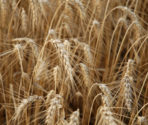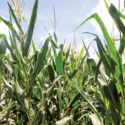Advertise Follow Us
Articles by Laura Barrera
Winter wheat can serve as a powerful rotational tool for no-tillers by breaking up pest and disease cycles and restoring poorer, worn-out soils.
Read More
The Social Side of Plants: How They Behave and Communicate
Scientists are finding plants actively respond to changes in their environment, and it may lead to great improvements in no-till production.
Read More
How Cover Crops Pay Off in a Continuous No-Till System
Cover crops involve some expense, but Rulon Enterprises in Arcadia, Ind., finds they do more than pay their way in their no-till system of 20-plus years.
Read More
Decade of No-Till, Manure Slows Erosion, Boosts Soil Biology
With nearly 10 years of no-tilling under his belt, Wayne Brunsman is focused on using cover crops to take soil health and crop production on his Iowa farm to the next level.
Read More








